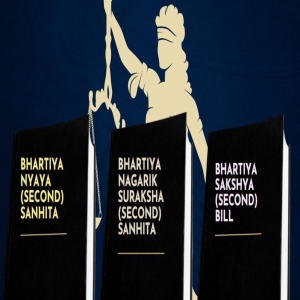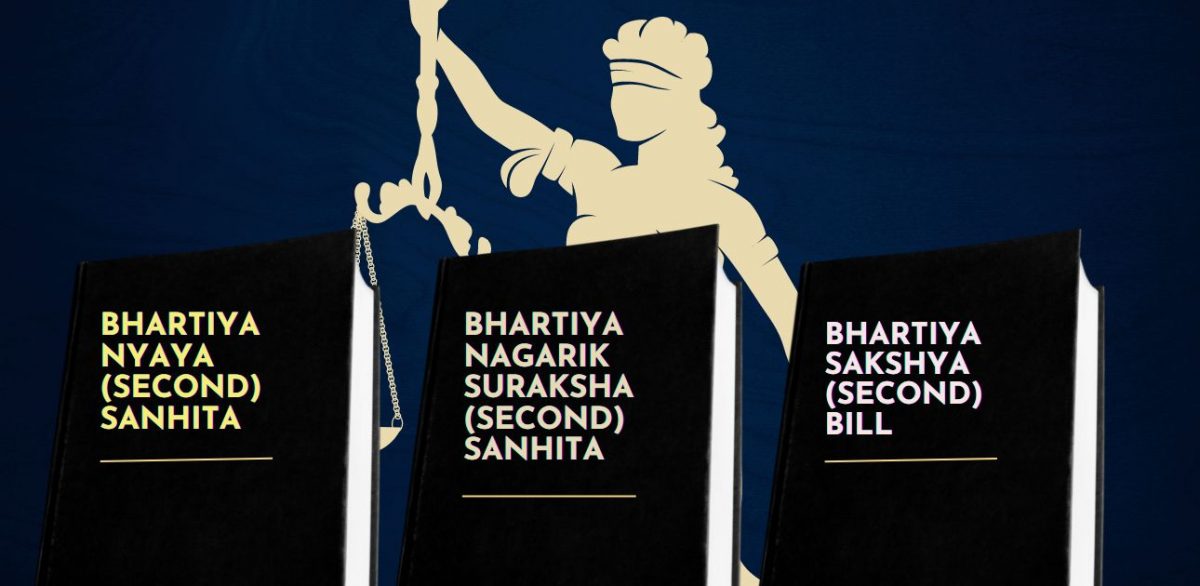
.jpg) Jessy Kurian
Jessy Kurian

Since its independence on August 15, 1947, India has been governed by three key Criminal Laws: the Indian Penal Code (IPC), the Criminal Procedural Code (CrPC), and the Indian Evidence Act.
After 77 years of independence, Shri Narendra Modi felt that Indians were governed by colonial laws and that it was necessary to have new criminal laws. Subsequently, the government passed three Bills to this effect in the Parliament in 2023, and the Bills got the assent of President Droupadi Murmu on December 25, 2023
Introducing the new laws has sparked a heated debate among various political parties, social activists, and NGOs. The legal fraternity, in particular, feels that their expertise and insights were not adequately considered in the decision-making process. This has led to protests from many Bar Councils and Bar Associations, including the Supreme Court Bar Association and the Bar Council of Delhi.
However, amidst all these, the new Criminal laws, The Bharatiya Nyaya Sanhita, The Bharatiya Sakshya Adhiniyam and The Bharatiya Nagarik Suraksha Sanhita, came into effect on July 1, 2024
The government claims that it is a major leap from "Videshi" to "Swadeshi" (from foreign to domestic). However, everything about old laws is not changed. Some sections are repealed, some are added, and some are amended. These laws have a prospective effect. The old cases (before July 1, 2024) will be dealt with under the old laws, and the new cases after July 1, 2024, will be dealt with under the new laws.
Introducing the new laws has undoubtedly presented a monumental task for the legal community. Lawyers across the country are now faced with the daunting challenge of navigating the old laws while thoroughly studying the new ones, a task that requires a significant investment of time and effort.
Bharatiya Nyaya Sanhita (BNS)
It replaces the Indian Penal Code (IPC), reducing the number of sections from 511 to 358 and adding 21 new offences, including hate crimes and mob lynching. It also introduces offences like terrorism, organised crime, and hate speech and redefines sedition as acts endangering national integrity (treason). Further, it expands the scope of theft to include data and intangible items.
Bharatiya Nagarik Suraksha Sanhita (BNSS)
It replaces the Criminal Procedure Code (CrPC), focusing on a victim-centric approach. It extends police custody from 15 to 90 days, allows trials in absentia, introduces Zero FIR (allowing FIRs at any police station in India), and includes electronic summons and a Witness Protection Scheme. It also mandates forensic investigations for serious offences and facilitates electronic trials, a significant shift from traditional courtroom procedures.
Bharatiya Sakshya Adhiniyam (BSA)
Replaces the Indian Evidence Act, modernising evidence handling by admitting electronic and digital records as evidence. It also mandates audio-recording of rape victim statements. In simple terms, electronic records are classified as primary evidence and allow electronic oral evidence to be given.
The Indian Penal Code (IPC) defining crime and prescribing appropriate punishments was adopted in 1860 and prepared by the first Law Commission of India. It was developed in line with the English Criminal Law. The Indian Evidence Act, initially passed in India by the Imperial Legislative Council in 1872 during the British Raj, contains a set of rules and allied issues governing the admissibility of evidence in the Indian Court of Law. The Code of Criminal Procedure (CrPC) was enacted in 1861 and established the rules to be followed in all stages. This was amended in 1973.
In 2000, the Government of India formed a panel headed by the former Chief Justice of Kerala and Karnataka, Justice V.S.Malimath, to suggest overhauling the century-old criminal justice system. In 2003, the Justice Malimath Committee submitted a report with 158 recommendations. The Committee opined that the existing system "weighed in favour of the accused and did not adequately focus on justice to the victims of crime". The Committee also found that with the emergence of technology and the increasingly complex nature of offences, the existing laws have failed to address the offences and ensure justice for the affected party.
Given technological advancements, the government asserts that the new laws will address contemporary issues such as organised crime and economic offences and that introducing community services as punishment will reduce crimes.
There are certain apprehensions among legal luminaries regarding certain sections, such as Zero FIR and raising police custody from 15 to 90 days.
However, we will have to wait and see what the effect of these laws and their effective implementation will be in the days to come.